1. Self-Help Books

Self-help books are meant to guide you toward a calmer, more centered life, but sometimes they do the opposite. Flipping through chapters that promise to “fix” your life can make you feel like you’re failing if you don’t immediately implement their advice. The pressure to adopt every tip or technique can feel overwhelming. Suddenly, reading for relaxation becomes a checklist of inadequacies.
Additionally, the sheer volume of self-help advice out there can leave you paralyzed. You might start comparing your progress to the idealized examples in the books. Instead of feeling inspired, you end up stressed and overthinking your own habits. What should have been a peaceful evening with a book turns into a mental endurance test.
2. Essential Oil Diffusers
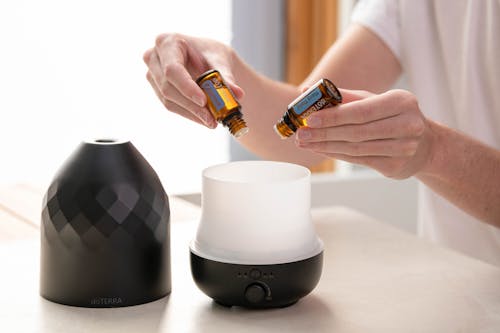
Essential oil diffusers are marketed as a magical way to reduce stress, but they can backfire. Some people find the scents overpowering, especially if they’re sensitive to smells. The constant hum of the diffuser itself can be irritating to light sleepers. Over time, it may trigger headaches instead of the calm vibes it promises.
Cleaning and maintaining a diffuser can also be unexpectedly stressful. Mold and residue buildup happen faster than people expect, and figuring out how to clean them properly is tedious. Choosing the right essential oil blend adds another layer of decision-making. So, instead of peace, you get a mini anxiety project on your counter.
3. Fitness Trackers
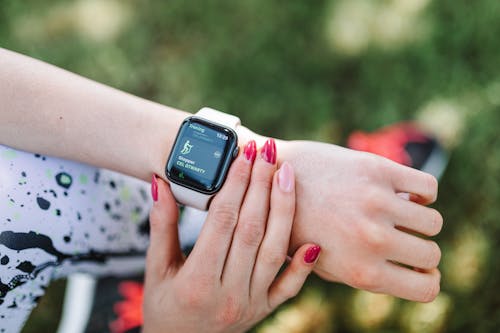
Fitness trackers are designed to motivate you to stay active, but they often feel like digital nagging devices. Seeing step counts or heart rates constantly displayed can turn exercise into a source of guilt. Missing a goal by a few hundred steps may spike stress instead of motivation. Instead of encouraging wellness, it can turn your day into a numbers-obsessed treadmill.
Moreover, analyzing sleep patterns can be a nightmare for those who naturally sleep lightly. Waking up to “poor sleep quality” notifications can create anxiety about getting rest. People may start obsessively tracking hours instead of actually relaxing. The very tool meant to promote health sometimes makes you feel unhealthy mentally.
4. Juicing Machines

Juicing machines are supposed to make healthy eating easy, but they can be surprisingly stressful. They take up counter space, require cleaning, and produce noise that’s impossible to ignore. The temptation to constantly juice “perfectly” balanced meals can add pressure to your daily routine. Skipping a day might feel like a personal failure rather than a choice.
Additionally, the nutritional value of juices often isn’t as balanced as it seems. The high sugar content from fruits can spike energy then crash it, leaving you more irritable than calm. Planning what to juice each day adds another mental checklist. By the time you finish cleaning, you might need a vacation from juicing itself.
5. Meditation Apps

Meditation apps promise peace at your fingertips, but they can sometimes create more tension than tranquility. Following a guided session while distracted by notifications or time constraints can feel frustrating. Some users feel judged by streak counts or progress bars. Instead of mindful breathing, you’re stressed about completing the session “correctly.”
There’s also the pressure of performance anxiety in meditation. People can become self-conscious about “not doing it right” or overthinking their thoughts during sessions. This turns a relaxing practice into a mental audit. Ironically, the app meant to reduce stress may amplify it.
6. Meal Prep Containers

Meal prep containers sound like a dream for organized eating, but they can be anxiety-inducing. Washing, drying, and labeling dozens of containers is more chore than self-care. Maintaining a rigid weekly schedule can make meals feel like a stressful obligation. Instead of freeing up your time, it adds a new layer of planning stress.
Additionally, balancing portion sizes and trying to make every meal Instagram-worthy can take the joy out of cooking. One misstep in portion control might feel like a nutritional failure. Your fridge starts to resemble a mini storage warehouse rather than a source of healthy food. Even the healthiest intentions can become mentally exhausting.
7. Foam Rollers

Foam rollers are a fitness favorite for recovery, but they can be painful and intimidating. Using them incorrectly can create more tension than relief, especially if you already have sore muscles. Many people overdo it, thinking it’s “better” to push through discomfort. Instead of feeling relaxed, you’re gritting your teeth and stressing over technique.
Foam rolling also demands a learning curve most don’t anticipate. Trying to target the right muscle groups while balancing awkwardly can be exhausting. Watching tutorial videos can make you feel incompetent if your body doesn’t bend like theirs. What’s marketed as post-workout zen often ends in muscle stress and frustration.
8. Scented Candles
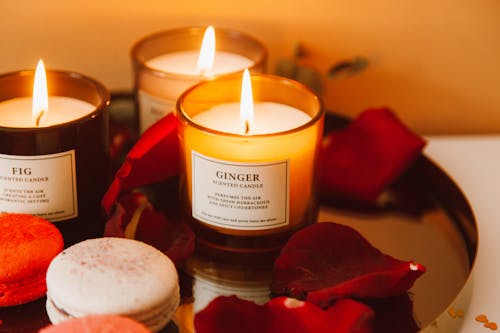
Scented candles are meant to set a calming mood, but they can introduce subtle stressors. Picking the right fragrance for your space feels like a major decision. Some scents are overpowering or trigger headaches. A “relaxing” candle can easily become a source of sensory irritation.
Lighting candles also carries safety concerns that many forget. Fear of leaving a candle unattended can create anxiety rather than calm. Constantly monitoring the flame doesn’t exactly promote serenity. The act of “setting the mood” becomes a small stress test.
9. Yoga Blocks

Yoga blocks are supposed to improve poses, but they can feel cumbersome for beginners. Positioning them incorrectly can strain muscles instead of supporting them. Feeling like you’re doing everything “wrong” can ruin a session meant to unwind. Instead of graceful flow, you may end up frustrated and stiff.
Beginners often worry about proper alignment, which adds a mental load to a physical practice. Instead of relaxing into the rhythm, they’re constantly calculating angles. Yoga is meant to release tension, yet these tools can introduce new stress. Blocks intended for support can end up feeling like obstacles.
10. Matcha Powder
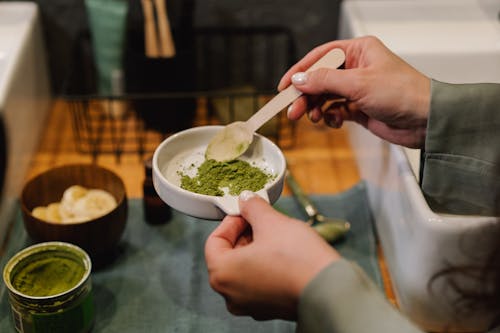
Matcha powder is marketed as a calming energy boost, but it can sometimes backfire. The caffeine content can lead to jitteriness in those sensitive to stimulants. Overcomplicating preparation—sifting, whisking, perfect foam—can turn a simple beverage into a ritualistic chore. The promise of zen is lost amid precision anxiety.
Additionally, the taste can be an acquired one, leaving beginners disappointed. People may push themselves to finish a bitter cup just to justify the effort. Instead of a peaceful tea break, it becomes an endurance test. Matcha’s stress-free branding doesn’t always match reality.
11. Weighted Blankets
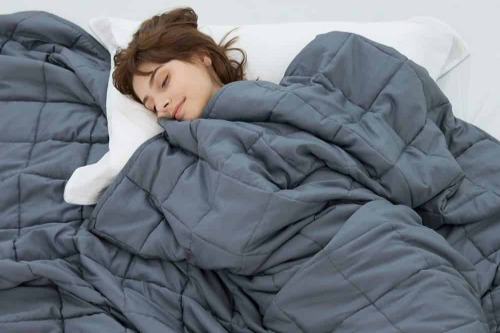
Weighted blankets are designed for comfort, but they can feel restrictive or heavy. Some people struggle to find the right weight, leading to restlessness rather than relaxation. Overheating or limited movement can create mild panic or discomfort. A cozy concept quickly turns into a sleep struggle.
Also, washing a large, weighted blanket is a daunting task. The effort to keep it clean can make it more of a hassle than a soothing tool. For people with claustrophobia or joint issues, it’s even more stressful. The blanket meant to hug you into calmness sometimes hugs too tightly.
12. Salt Lamps

Salt lamps are marketed as detoxifying and mood-boosting, but the evidence is minimal. Many people buy them hoping for clean air and serenity but end up worrying about the constant salt residue. Bulbs need frequent replacement, adding maintenance stress. Dusting the lamp feels endless in humid climates.
Additionally, the soft glow may not provide enough light for reading or practical tasks. People may strain their eyes while trying to relax. What was meant as ambiance can become a frustrating compromise. Instead of comfort, you get small but persistent irritations.
13. Meal Replacement Shakes

Meal replacement shakes promise convenience, yet they can be surprisingly stressful. Tracking calories, mixing powders perfectly, and timing your intake can create a rigid routine. Missing a shake can feel like a nutritional failure. Instead of simplification, it adds layers of mental load.
The taste and texture can also be off-putting. Forcing yourself to drink something unpleasant in the name of health isn’t exactly relaxing. Social situations become tricky if you rely heavily on shakes. A product meant to streamline wellness can inadvertently complicate it.
14. Fitness Classes with Social Pressure

Group fitness classes are intended to motivate, but they can increase anxiety. Feeling observed by other participants can add social stress instead of encouragement. Keeping pace with a high-energy instructor may leave you exhausted and frustrated. Exercise should release tension, not create performance pressure.
Moreover, some classes have competitive atmospheres that amplify stress. Comparing yourself to others’ strength, flexibility, or endurance can be discouraging. The mental focus shifts from wellness to judgment. What’s supposed to be uplifting may become mentally draining.
15. Journals With Prompts
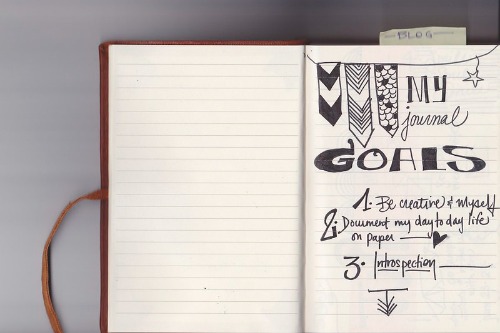
Prompted journals are designed for self-reflection, but they can also cause overthinking. Facing questions about your feelings or life goals can feel like homework. Pressure to write profound insights can be intimidating. Instead of calm introspection, it becomes a source of stress.
People may also worry about being “honest enough” or creative enough with their answers. Skipping prompts can create guilt rather than relief. A tool meant to clarify thoughts can sometimes cloud them further. Journaling should soothe, but structured prompts can overwhelm.
This post 15 Wellness Items That Are More Stressful Than Relaxing was first published on Greenhouse Black.
